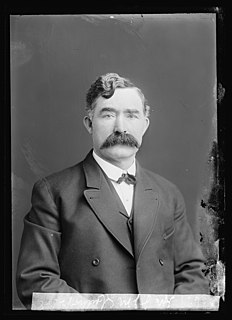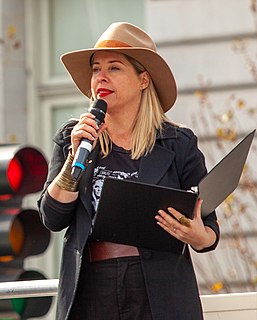A Quote by John McCarthy
His ambition is to be the spider in the World Wide Web.
Related Quotes
Do you understand how there could be any writing in a spider's web?" "Oh, no," said Dr. Dorian. "I don't understand it. But for that matter I don't understand how a spider learned to spin a web in the first place. When the words appeared, everyone said they were a miracle. But nobody pointed out that the web itself is a miracle." "What's miraculous about a spider's web?" said Mrs. Arable. "I don't see why you say a web is a miracle-it's just a web." "Ever try to spin one?" asked Dr. Dorian.
Time seems to pass. The world happens, unrolling into moments, and you stop to glance at a spider pressed to its web. There is a quickness of light and a sense of things outlined precisely and streaks of running luster on the bay. You know more surely who you are on a strong bright day after a storm when the smallest falling leaf is stabbed with self-awareness. The wind makes a sound in the pines and the world comes into being, irreversibly, and the spider rides the wind-swayed web.
I make mistakes, but I am on the side of Good," the Golux said, "by accident and happenchance. I had high hopes of being Evil when I was two, but in my youth I came upon a firefly burning in a spider's web. I saved the victim's life." "The firefly's ?" said the minstrel. "The spider's. The blinking arsonist had set the web on fire.
When I was 14, I spent a huge amount of time on the Internet, but not the Internet we know today. It was 1994, so while the World Wide Web existed, it wasn't generally accessible. Prodigy and CompuServe were popular, and AOL was on the rise, but I didn't have access to the web, and no one I knew had access to the web.

































